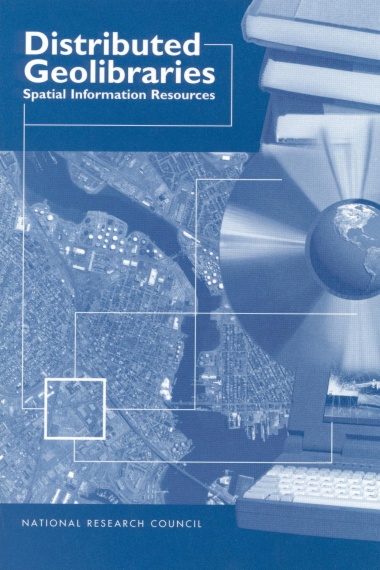

A distributed geolibrary is a vision for the future. It would permit users to quickly and easily obtain all existing information available about a place that is relevant to a defined need. It is modeled on the operations of a traditional library, updated to a digital networked world, and focused on something that has never been possible in the traditional library: the supply of information in response to a geographically defined need. It would integrate the resources of the Internet and the World Wide Web into a simple mechanism for searching and retrieving information relevant to a wide range of problems, including natural disasters, emergencies, community planning, and environmental quality. A geolibrary is a digital library filled with geoinformation-information associated with a distinct area or footprint on the Earth's surface-and for which the primary search mechanism is place. A geolibrary is distributed if its users, services, metadata, and information assets can be integrated among many distinct locations.
This report presents the findings of the Workshop on Distributed Geolibraries: Spatial Information Resources, convened by the Mapping Science Committee of the National Research Council in June 1998. The report is a vision for distributed geolibraries, not a blueprint. Developing a distributed geolibrary involves a series of technical challenges as well as institutional and social issues, which are addressed relative to the vision.